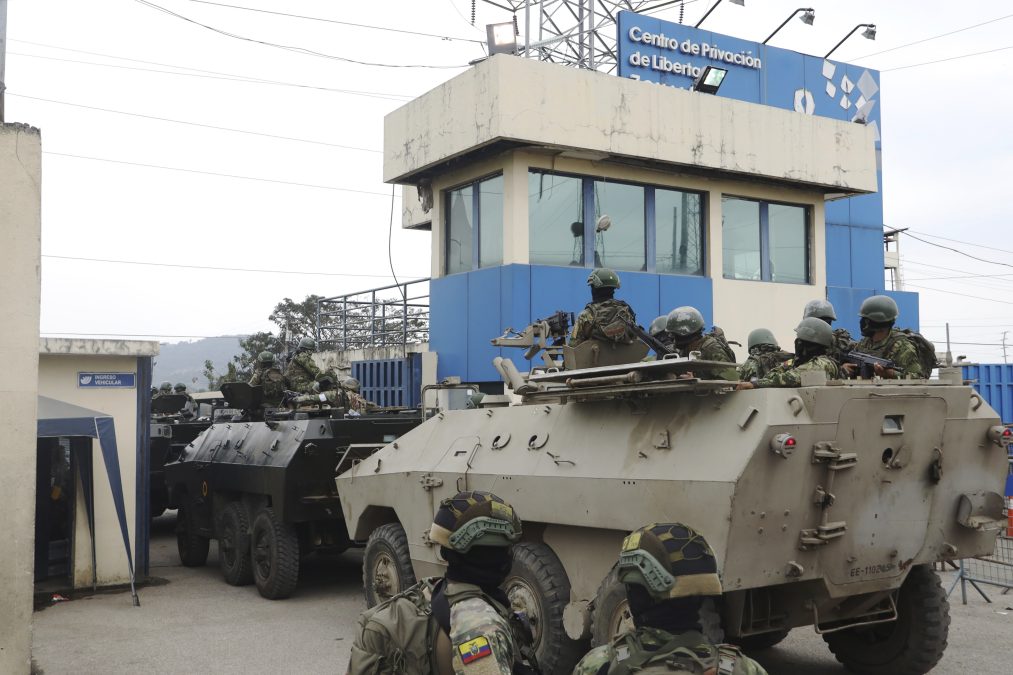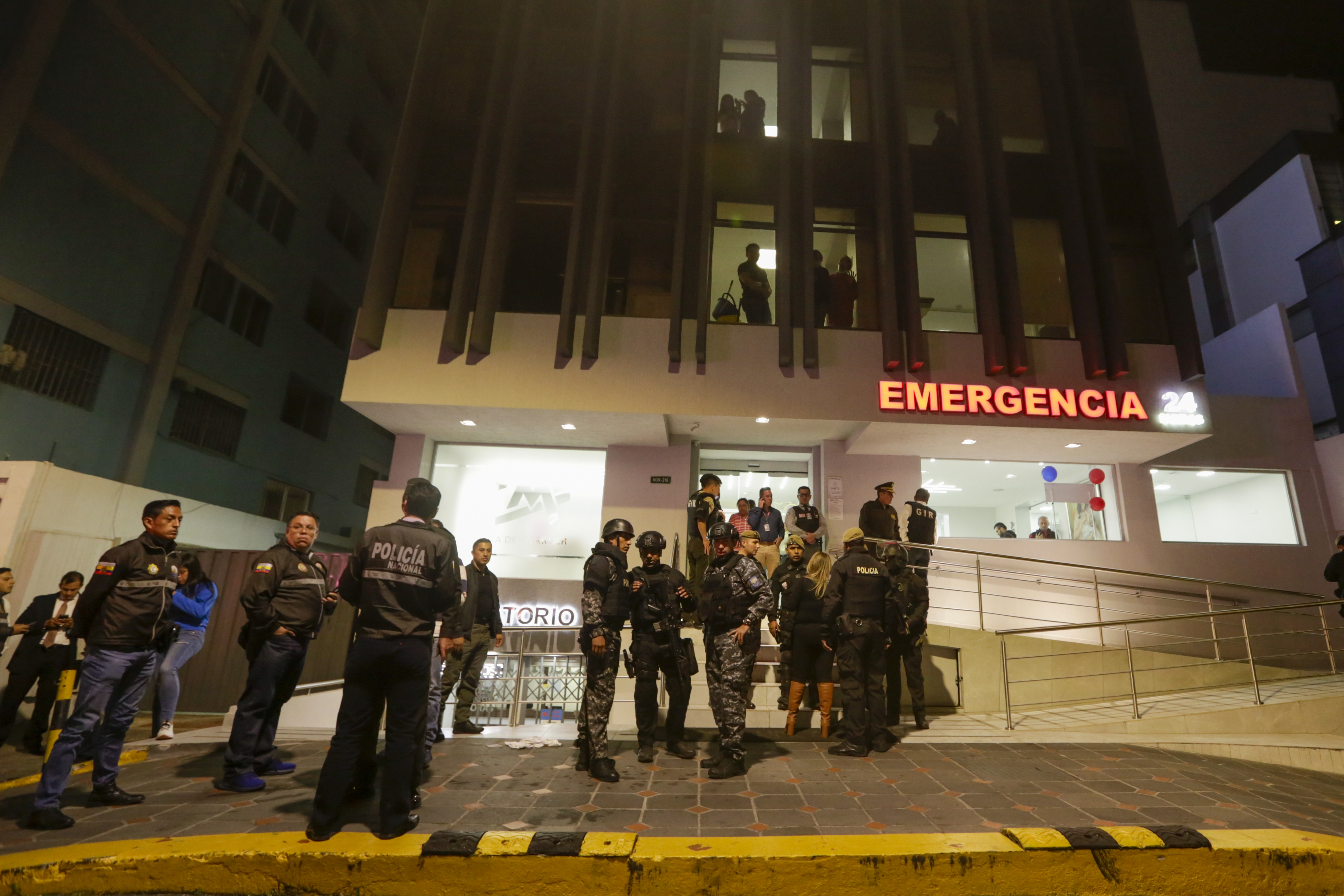
Daniel Noboa, an inexperienced politician and an heir to a fortune built on the banana trade, won Ecuador’s presidential runoff election Sunday held amid unprecedented violence that even claimed the life of a candidate.
With about 96% of the votes counted, electoral officials said Noboa had 52.2% of the votes, compared to 47.8% for Luisa González, a leftist lawyer and ally of exiled former President Rafael Correa. González conceded defeat during a speech before supporters Sunday night and said she planned to call Noboa to congratulate him.
Noboa, 35, will lead Ecuador during a period marked by unprecedented violence due to the growing drug trade in the country. Throughout the campaign, Ecuadorians, who now have to continuously watch their backs and limit how often they leave home, had a universal demand — safety.
The nationwide uneasiness began when violence erupted about three years ago, but it reached an unthinkable level when Fernando Villavicencio was killed Aug. 9 as he left a campaign rally.
Noboa’s political career began in 2021, when he earned a seat in the National Assembly and chaired its Economic Development Commission. The U.S.-educated businessman opened an event organizing company when he was 18 and then joined his father’s Noboa Corp., where he held management positions in the shipping, logistics and commercial areas.
Get Tri-state area news delivered to your inbox.> Sign up for NBC New York's News Headlines newsletter.
His father, Álvaro Noboa, is the richest man in Ecuador thanks to a conglomerate that started in the growing and shipping of bananas — Ecuador’s main crop — and now includes more than 128 companies in dozens of countries. The elder Noboa unsuccessfully ran for president five times.
The new president's term will run only through May 2025, which is what remains of the tenure of President Guillermo Lasso. He cut his term short when he dissolved the country’s National Assembly in May as lawmakers carried out impeachment proceedings against him over alleged improprieties in a contract by a state-owned company.
Lasso, a conservative former banker, clashed constantly with lawmakers after his election in 2021 and decided not to run in the special election. On Sunday, he called on Ecuadorians to have a peaceful election and think about what is "best for their children, their parents and the country.” He said voters have the wisdom “to banish demagoguery and authoritarianism as they look toward a tomorrow of peace and well-being for all.”
Under Lasso's watch, violent deaths soared, reaching 4,600 in 2022, the country’s highest in history and double the total in 2021. The National Police tallied 3,568 violent deaths in the first half of 2023.
The spike in violence is tied to cocaine trafficking. Mexican, Colombian and Balkan cartels have set roots in Ecuador and operate with assistance from local criminal gangs.
“I don’t expect much from this election," Julio Ricaurte, a 59-year-old engineer, said Sunday near one of the voting centers in northern Quito, the capital. “First, because the president will have little time to do anything, and second because the (National) Assembly in our country is an organization that prevents anyone who comes to power from governing.”
Noboa and González, both of whom have served short stints as lawmakers, advanced to the runoff by finishing ahead of six other candidates in the election’s first round on Aug. 22. The replacement of Villavicencio finished in third place.
A large group of military and police officers as well as private security guards protected Noboa when he voted in Olón, a community on the country's central Pacific coast. He wore a bulletproof vest.
“I believe that the trend is irreversible, and today, we begin to build a new Ecuador,” he said at the voting center, confidently alluding to a victory.
González, a lawyer, was unknown to most voters until the party of Correa, her mentor, picked her as its presidential candidate. She held various government jobs during Correa’s decade-long presidency and was a lawmaker from 2021 until May.
At the start of the campaign, she said Correa would be her adviser, but she recently sought to distance herself a bit in an effort to court voters who oppose the former president, who remains a major force in Ecuador despite being found guilty of corruption in 2020 and sentenced in absentia to eight years in prison. He has been living in his wife’s native Belgium since 2017.
The National Police ommander, Gen. César Zapata, said Sunday that authorities investigated two reports of explosive devices outside Quito and deemed them to be false. He also said 174 people had been arrested for violating a ban on alcohol sales on Election Day.
Rosa Amaguaña, a 62-year-old fruit and vegetable vendor, said Sunday that safety “is the first thing that must be solved” by the next president.
“I'm hopeful the country will change,” Amaguaña said. "Yes, it can. The next president must be able to do even something small.”
___
Garcia Cano reported from Caracas, Venezuela.



